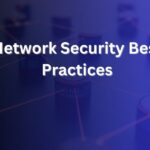How to start a career in cyber security with no experience? In today’s digital age, the demand for cybersecurity professionals is skyrocketing, but many aspiring candidates feel blocked by one obstacle—lack of experience. The good news? You don’t need a computer science degree or years of technical work under your belt to get started in cybersecurity. With the right strategy, mindset, and tools, even beginners can launch a thriving career in this high-demand field.
Cybersecurity is one of the fastest-growing areas in IT, offering roles that range from ethical hacking to policy-making and risk analysis. Many of these positions require problem-solving skills, a curious mindset, and the willingness to learn—traits that don’t require prior job experience. What matters is building a strong foundation, getting hands-on practice, and understanding the core concepts of digital security.
In this article, we’ll break down actionable steps for how to start a career in cybersecurity with no experience. We’ll explore entry-level certifications, free learning resources, real-world practice techniques, and how to stand out in interviews. Whether you’re a student, a career changer, or just curious about tech, this guide will help you enter the cybersecurity world confidently.
Launch Your Cybersecurity Career: No Experience? No Problem!
Breaking into cybersecurity with no experience may feel overwhelming, but it’s more achievable than ever. Unlike many traditional career paths, cybersecurity welcomes individuals from diverse professional and educational backgrounds. Whether you’re coming from customer service, education, or retail, there’s a place for you in this fast-growing field.
Begin by understanding cybersecurity fundamentals—how cyber threats work and how systems are protected. Use free learning platforms like Cybrary, TryHackMe, or YouTube to explore basic topics such as networking, malware, firewalls, and encryption. Once confident, pursue a beginner-friendly certification like CompTIA Security+ to validate your knowledge.
Next, build a home lab using free tools like Kali Linux, VirtualBox, and Wireshark to practice real-world scenarios. This hands-on learning shows initiative and can impress potential employers more than theory alone. Participate in Capture the Flag (CTF) challenges and contribute to online discussions to build community connections. Even exploring tools outside cybersecurity—like using an upside down text generator to understand encoding concepts—can help develop your curiosity and technical thinking.
Networking is key. Engage on LinkedIn, attend virtual meetups, and seek mentors. Document your learning journey and highlight cybersecurity projects on your resume. Tailor your applications to entry-level roles by emphasizing transferable skills such as problem-solving and critical thinking.
With dedication and the right strategy, anyone can launch a successful cybersecurity career—even without prior experience.
Why Is Cybersecurity a Great Career Choice Today?
Rising Demand Across All Industries
Cybersecurity is one of the most in-demand career fields globally. As digital transformation accelerates, organizations across every sector—healthcare, banking, education, and government—require skilled cybersecurity professionals to protect sensitive data and systems. With cyber threats becoming more sophisticated, the need for security experts continues to outpace the supply, creating a favorable job market for newcomers.
Lucrative and Competitive Salaries
One of the major attractions of a cybersecurity career is the earning potential. Even entry-level positions such as security analyst or IT security technician offer salaries well above the national average. As you gain experience, pursue certifications, and move into roles like penetration tester or cybersecurity engineer, six-figure incomes become increasingly common.
Alternative Learning Pathways
Unlike many technical careers, cybersecurity doesn’t mandate a college degree. Employers often prioritize practical skills, certifications, and problem-solving abilities over academic credentials. This opens doors for career changers, self-learners, and those without traditional educational backgrounds to succeed and grow quickly.
Diverse and Evolving Career Paths
Cybersecurity offers a variety of specializations, including network defense, threat intelligence, governance and compliance, and ethical hacking. This flexibility allows individuals to find a path that aligns with their interests and strengths, whether they’re more analytical, technical, or policy-focused.
Purpose-Driven Work with Real Impact
A career in cybersecurity is more than just a paycheck—it’s about protecting critical infrastructure, sensitive information, and public trust. The work is high-stakes and meaningful, offering professionals the chance to contribute to digital safety and societal well-being every day.
What Are the Best Certifications for Cybersecurity Beginners?
If you’re wondering how to start a career in cyber security with no experience, certifications can be your biggest advantage. They help demonstrate your commitment, validate your foundational knowledge, and show employers that you’re serious about entering the field—even without hands-on job history. Here are the best beginner-friendly certifications to consider:
- CompTIA Security+: This globally recognized certification is a perfect starting point. It covers essential topics like network security, threat management, cryptography, and risk mitigation. It’s often listed as a requirement in job postings for entry-level cybersecurity roles.
- Certified Cybersecurity Entry-Level Technician (CCET): Offered by ISC2, this new credential is designed specifically for absolute beginners. It focuses on cybersecurity fundamentals and provides a solid foundation for progressing toward advanced certifications like CISSP.
- Google Cybersecurity Certificate: Hosted on Coursera, this accessible and affordable course blends theoretical knowledge with hands-on labs. It’s ideal for career changers or students who prefer structured, guided learning.
- Cisco CyberOps Associate: Tailored for those interested in security operations, this certification emphasizes incident response, security monitoring, and analysis within a Security Operations Center (SOC) environment.
- CompTIA Network+: While not required, this is highly recommended if you’re unfamiliar with networking concepts. Understanding how networks function is critical in identifying and defending against cyber threats.
- Microsoft Security, Compliance, and Identity Fundamentals: This certification is a great entry point for individuals interested in cloud security, especially within Microsoft-based ecosystems and enterprise environments.
How to Build Experience When You Have None?
Gaining hands-on experience in cybersecurity without a formal job can feel challenging, but there are powerful ways to build your skills and credibility. Here’s how to start accumulating experience, even if you’re completely new to the field:
- Set Up a Home Lab: Create your cybersecurity lab using free tools like VirtualBox, Kali Linux, Wireshark, or Burp Suite. Practice scanning networks, detecting vulnerabilities, and simulating real-world attacks and defenses in a safe environment.
- Participate in Capture the Flag (CTF) Events: CTFs are gamified challenges that test your problem-solving and security knowledge. Many are beginner-friendly and look great on your resume, showing initiative and a hunger to learn.
- Contribute to Open Source Projects: Join GitHub repositories focused on cybersecurity. Whether you’re improving documentation, testing for bugs, or helping with community support, your contributions demonstrate engagement with the security community.
- Volunteer or Freelance: Reach out to local businesses or non-profits and offer to assess their basic security setup. These real-world experiences provide valuable references and portfolio pieces.
- Start a Cybersecurity Blog: Document what you learn. Writing about tools, concepts, or news builds authority and improves communication skills—both highly valued in this field.
- Apply for Internships or Entry-Level Roles: Even unpaid internships offer practical exposure. These positions often lead to full-time employment and help you build a network in the industry.
Skills You Need to Succeed in Cybersecurity Without Experience
Analytical Thinking
One of the most essential cybersecurity skills is analytical thinking. Security professionals must examine log files, spot patterns, and evaluate threats using limited or fragmented information. This ability to assess data critically helps in identifying vulnerabilities and preventing cyberattacks before they escalate.
Curiosity and Self-Learning
Cybersecurity is a constantly evolving field. Threats emerge daily, and technologies change rapidly. Those who succeed without prior experience are typically self-starters who are eager to explore new tools, read security blogs, experiment in home labs, and stay informed through communities like Reddit or LinkedIn. Lifelong learning is not optional—it’s a must.
Attention to Detail
Small anomalies in system behavior can indicate major problems. Whether it’s an unusual login attempt or a tiny misconfiguration in firewall rules, missing such details can lead to serious breaches. Being able to focus and spot subtle inconsistencies is a key trait of an effective cybersecurity professional.
Communication Skills
It’s not enough to identify a security issue—you must also be able to explain it clearly to both technical and non-technical audiences. Whether writing reports, briefing management, or collaborating with developers, strong communication skills ensure your message is understood and actionable.
Basic Technical Literacy
You don’t need to be a software engineer, but understanding the basics of networking, operating systems, and command-line tools will significantly help. These foundational skills make it easier to grasp how systems work—and how to protect them effectively.
Conclusion
If you’ve ever wondered how to start a career in cyber security with no experience, the answer lies in being proactive, persistent, and purposeful. You don’t need a degree or tech background to break into the field—you need commitment, curiosity, and a willingness to learn. The demand for cybersecurity professionals is only growing, and there’s room for passionate newcomers who bring fresh perspectives. By following the steps outlined above, you can confidently begin your journey and build a meaningful, future-proof career in cybersecurity.
FAQ’s
Can I get into cybersecurity without experience?
Yes! Many people enter cybersecurity with zero background by focusing on self-study, completing beginner certifications, and building hands-on experience in home labs.
How long does it take to break into cybersecurity?
Depending on your consistency and learning pace, you can qualify for entry-level cybersecurity jobs in 6 to 12 months with the right approach and preparation.
Do I need to know programming to start?
Not at all. Most beginner roles prioritize networking, operating system knowledge, and security concepts—coding is useful but not required from the start.
What are good beginner roles in cybersecurity?
Start with roles like SOC analyst, cybersecurity technician, IT support with a security focus, or junior security analyst—they provide a strong learning foundation.
What’s the best way to stand out in job applications?
Go beyond the resume. Highlight certifications, hands-on labs, blog posts, or CTF participation to show real initiative and a passion for cybersecurity.
Is age a barrier to starting a cybersecurity career?
Not at all. Cybersecurity is skills-focused, not age-driven. Many career changers in their 30s, 40s, or even 50s are entering and thriving in the field.







